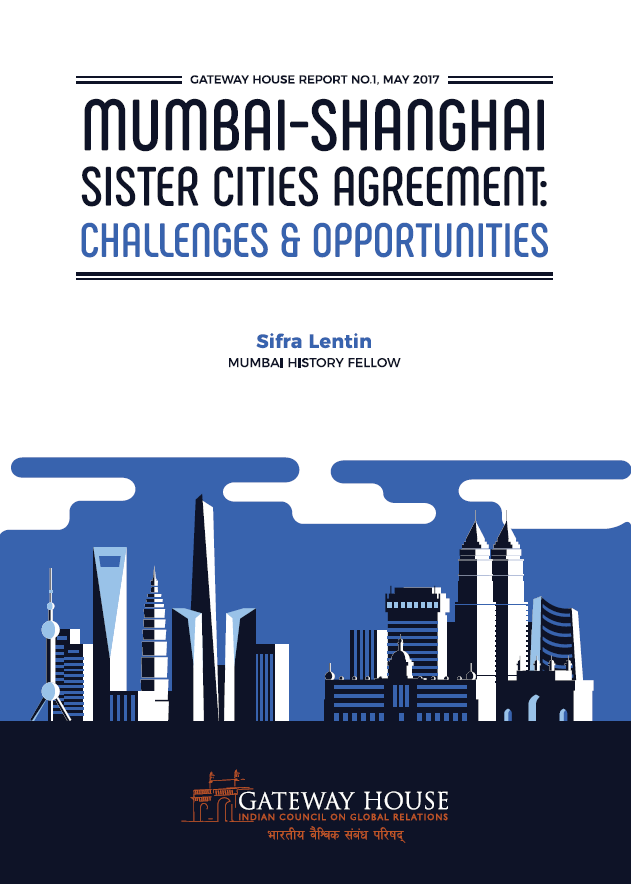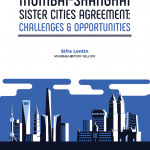In this report, “Mumbai-Shanghai Sister Cities Agreement: Challenges & Opportunities”, Sifra Lentin, Mumbai History Fellow, Gateway House looks at Shanghai and Mumbai, the two major metropoles of Asia. She discusses the scope of the relationship, highlights the issues and puts forth key recommendations to strengthen it to mutual benefit.
These recommendations draw on three very workable templates which demonstrate not just the flexibility of Sister City Agreements in general, but how bilateral para-diplomacy at the city level can be tailor-made to meet the goals of each sister city.

Executive Summary
Key Findings:
- No collaboration initiated as yet between the Municipal Corporation of Greater Mumbai (MCGM) and Shanghai Municipal People’s Government (SMPG) after the “Mumbai-Shanghai Sister City Agreement” was signed over two years ago [1] (on 18 September 2014, in New Delhi, by the mayors of the two cities).
- The SMPG is akin to a Chinese provincial government that can have representation at international bilateral and multilateral forums, but the MCGM, in turn, is not a nodal agency that can facilitate this Agreement. The Maharashtra government can do so.
- Sister City agreements are an important tool of para-diplomacy, useful in attracting FDI, financial and other technology, and fostering cultural understanding.
Key Recommendations:
- Maharashtra Chief Minister, Shri Devendra Fadnavis, will be the appropriate mentor from Mumbai to facilitate this Agreement. The state’s chief protocol officer, using the framework of Joint Working Groups (JWGs), can unite the various departments of the MCGM and state government to meet their counterparts from Shanghai. Such a working model can enable the state government to directly liaison with the central government, particularly the East Asia Division (Ministry of External Affairs), and Indian missions abroad.
- The successful completion of one or two projects will give city-twinning a fillip. A short list of worthwhile projects can be devised in consultation with think tanks, secretaries of state ministries concerned, and civic administrators.
- Cultural liaisons, like the theatrical version of Raj Kapoor’s film, Awaara–a collaboration between the Indian Council for Cultural Relations (ICCR), New Delhi, and Shanghai International Arts Festival–that will premiere this year in Shanghai, can be a part of this Agreement too to fast-track the relationship.
- A Mumbai-Shanghai Forum, launched by Chief Minister Fadnavis and mayor of Shanghai during the CM’s forthcoming visit, can facilitate not only the Sister Cities Agreement between the two municipalities, but enlarge the discussion on urban planning and development in emerging markets, to involve think tanks, business and manufacturing, financial technology, transportation, the film industry, and Mumbai and Shanghai varsities.
You can download the PDF version of this report, here.
Sifra Lentin is the Mumbai History Fellow at Gateway House.
This report was exclusively written for Gateway House: Indian Council on Global Relations. You can read exclusive content here.
For interview requests with the author, or for permission to republish, please contact outreach@gatewayhouse.in.
© Copyright 2017 Gateway House: Indian Council on Global Relations. All rights reserved. Any unauthorized copying or reproduction is strictly prohibited.
References
[1] The official title is “Agreement on the Establishment of Sister City Relations between Mumbai, Republic of India and Shanghai, People’s Republic of China” (18 September 2014)


